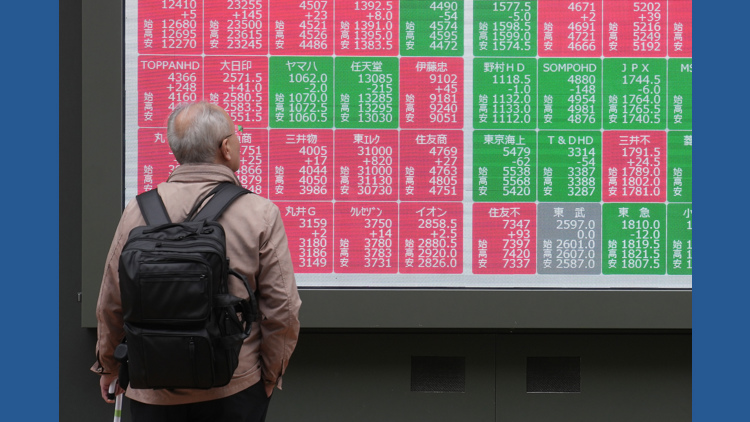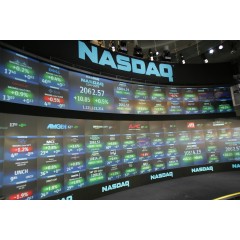
A person looks at an electronic stock board showing Japan's Nikkei index at a securities firm Tuesday, Nov. 25, 2025, in Tokyo. (AP Photo/Eugene Hoshiko)
Asian shares presented a mixed performance on Tuesday, November 21, 2023, following a notable rally in U.S. markets driven by optimism surrounding potential interest rate cuts by the Federal Reserve. This sentiment was not enough to sustain consistent growth across the region, as various markets showed different trajectories.
Market Reactions Across Asia
In Japan, the Nikkei 225 saw a slight increase of less than 0.1%, trading at 48,644.92 after reopening from a holiday. Meanwhile, South Korea’s Kospi index remained nearly flat at 3,848.00, indicating minimal movement. Notably, Taiwan’s Taiex experienced a more robust rise, climbing 1.4%.
Chinese markets reported gains, with the Hang Seng index in Hong Kong rising by 0.6% to 25,875.36. The Shanghai Composite index also saw an increase of 1.1%, reaching 3,880.22. This uptick was further boosted by a 2.4% increase in shares of e-commerce giant Alibaba, as investors awaited the company’s earnings report scheduled for later that day.
In contrast, Australia’s S&P/ASX index declined by 0.2% to 8,510.30, reflecting the mixed sentiment experienced across the region.
U.S. Market Dynamics and Future Implications
U.S. markets experienced a strong performance on Monday, November 20, 2023, with the S&P 500 climbing 1.5% to close at 6,705.12, marking one of its best trading days since the summer. The Dow Jones Industrial Average increased by 0.4% to 46,448.27, while the Nasdaq Composite surged 2.7% to reach 22,872.01. This growth stemmed from rising expectations that the Federal Reserve may implement further interest rate cuts in December, a move anticipated to invigorate economic growth.
Additionally, stocks related to the artificial intelligence sector contributed significantly to the market’s upswing. Notably, Alphabet saw a 6.3% increase following positive reception of its new Gemini AI model, helping to drive the S&P 500 higher. Similarly, Nvidia shares rose by 2.1%.
Despite the recent gains, the markets have experienced volatility due to uncertainty surrounding the Federal Reserve’s interest rate decisions and concerns over a potential bubble in the AI sector. This environment has posed challenges for investors since a significant sell-off in April.
Looking ahead, traders face critical economic indicators this week, including a key report from the U.S. government on wholesale inflation for September. Economists anticipate a 2.6% increase in prices compared to the previous year, consistent with August figures. A higher-than-expected inflation reading could dissuade the Federal Reserve from further rate cuts, as lower rates may exacerbate inflationary pressures.
Despite concerns, market participants are currently betting on an approximately 85% probability that the Federal Reserve will cut rates in December, a notable increase from 71% just days earlier. This marks a shift from a less than even chance observed a week prior, according to data from the CME Group.
In other market activities, U.S. benchmark crude oil prices fell by $0.28 to $58.56 per barrel, while Brent crude dropped $0.33 to $62.39 per barrel. The U.S. dollar weakened against the yen, falling to 156.81 from 156.91, and the euro slipped slightly to $1.1517 from $1.1521. Bitcoin also faced a decline, dropping 1.1% to $88,200, down sharply from nearly $125,000 last month.
As U.S. markets prepare for a shorter trading week due to the Thanksgiving holiday on Thursday, November 23, 2023, the focus remains on economic data and the potential impact on interest rates, shaping investment strategies moving forward.







